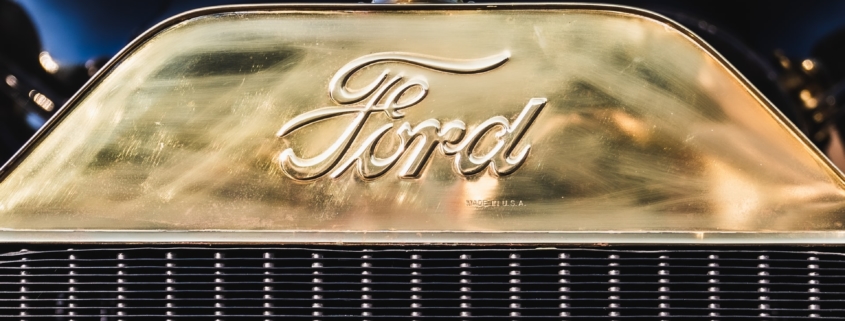Hertz Bets On An Accessible Tomorrow In Which We All Will Win
This is surprising news.
If any legacy automotive company were to have a clear, concise, inspirational vision about the future it would be Ford Motor Company. Ford Motor Company became successful because its founder, Henry Ford, had an incredible vision. Simply put, Henry Ford saw a future where everyone who makes a car would be able to drive to work in their own car. To do this, his company would make a car that would be affordable to every American.
However, it is not Ford Motor Company that is creating a future in which it will win. It is a most unlikely candidate: Hertz.
Hertz is over 100 years old. Its car rental business was decimated by Covid-19. When people stopped traveling, they stopped renting cars. Hertz filed for bankruptcy selling off inventory just to keep the business operational. If you did wind up at a Hertz counter during the pandemic, your choices were not only limited, but iffy as some vehicles had maintenance issues.
In a detailed and rather distressing review of Hertz’ problems in Bloomberg BusinessWeek, Hertz suffered for decades with financial engineers managing the business. Hertz amassed extraordinary debt. Additionally, there were operational problems merging its Hertz systems with newly acquired Dollar Thrifty, pressure and input from Carl Icahn, serious accounting issues resulting in an SEC fine and a lawsuit against three executives and a CEO, still ongoing.
Yet now, under new ownership and leadership, Hertz is being viewed as visionary. Hertz’ post-bankruptcy future is being guided by interim CEO, Mark Fields, who is an ex-Ford Motor Company leader. Mark Fields is not just a car guy: he is a Ford Motor Company car guy. He understands the value of creating, articulating and actualizing a galvanizing, startling, compelling possible dream.
You cannot work at Ford Motor Company and ignore its provenance. The greatest part of the Ford Motor Company legacy was the democratization of mobility. Anyone could afford to buy a car. And, according to Mark Fields, underlying the purchase of 100,000 Tesla vehicles, the construction of EV charging stations and a partnership with Uber, is the belief that for electric vehicles to become the norm, some company will have to democratize electric vehicle mobility. Mr. Fields stakes his bet on Hertz.
Surveying the established automotive brands, most of these have or will have EV’s with prices out of range for the average car buyer. And, as Mr. Fields points out, only Tesla has the capacity to churn out electric vehicles “at scale.” Success for electric vehicles will only come when they can be owned by anyone. This is vintage Henry Ford.
“I will build a motor car for the great multitude. It will be so low in price that no man making a good salary will be unable to own one.
“When I’m through everybody will be able to afford one and everyone will have one ad will be able to enjoy with his family the blessing of hours of pleasure in God’s great open spaces. The horse will have disappeared from our highways, the automobile will be taken for granted and we will give a large number of men employment at wages.”
In other words, the purpose of Ford Motor Company was to make “… mobility accessible to everyone.”
Some of the most successful brands are based on democratizing their categories. McDonald’s democratized eating out. Target democratized stylish, well-designed yet affordable products. The Franklin Mint democratized owning artworks. Its die-cast airplanes and vehicles, plates, commemorative pieces, dolls, coins, sculptures gave people the opportunity to own and collect art. Olay skincare democratized scientifically designed products that work at affordable pricing. The Ordinary, recently purchased by Estee Lauder, takes that affordability to a new level. The Ordinary’s serums oils and creams in most cases cost around US $8. IKEA democratized furniture while its Swedish relative, H&M, democratized fashion.
Many of the automotive companies betting on the all-electric future envision a cleaner world, a more sustainable tomorrow, a smarter (AI, digital) tomorrow. Sustainability is essential, of course. Opening that sustainable world to everyone in ways that make mobility accessible to the masses is even more bold and exciting. (The Chevy Bolt EV and the Bolt EUV could have been positioned as democratizing EVs but all Bolt electric vehicles have been recalled because their batteries could be defective and cause fires. In San Francisco, bolt EVs are banned from parking lots citing “public safety.” General Motors has focused on EV leadership rather than on EV’s for the masses, look no further than it electric Hummer, starting at US $80,000.
While business press and practicing pundits focus on the financial implications of Hertz’ statements, and while Elon Musk (a visionary in his own right) tweets about the on-off nature of the unsigned Hertz contract along with the pace of Tesla-to-Hertz deliveries, Mark Fields presents a future-oriented, ambitious goal with opportunities that others did not see. Mr. Fields is creating the dimensions of the world in which Hertz will win, a world in which competitors will be playing by Hertz’ rules. He is providing a framework that will guide decision-making, planning and action.
In Hertz’ tomorrow, Hertz will succeed by owning the bat, the ball and the playing field. And yet, in Hertz’ tomorrow, we will all be winners.



